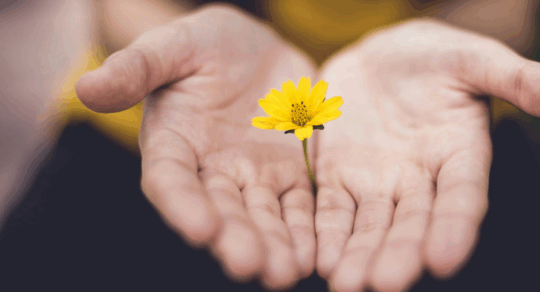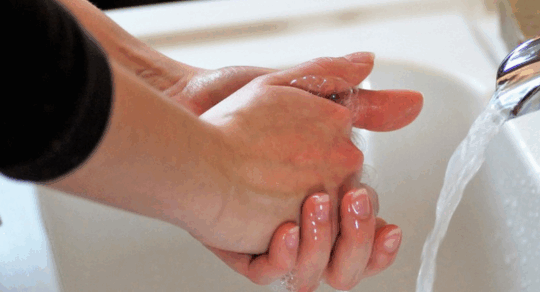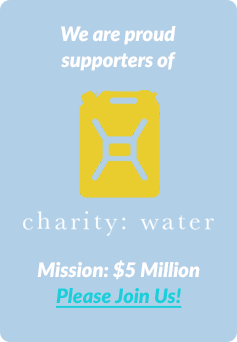I must admit that this blog has been sitting in my drafts for about five months. I haven’t been able to bring myself to finish it. Partially because I’ve had other things to get done, but also because I’ve felt like I haven’t been living a balanced life, and therefore I felt it would be somewhat fraudulent to write about finding exponential growth through ease.
Fortunately, I’ve managed to quiet those silly self-sabotaging voices for long enough to allow myself to publish this because I know that what I have to say is important, and I would like to share it.
I believe that often we don’t start something for several reasons: we think we can’t, we feel we don’t deserve to, we believe other people have some special gift (which we lack) that enables them to do it, or something along those lines. All of which are not very self-compassionate thoughts, but we’ll get to that a bit later.
I’ve been reading an interesting book recently called Laziness Does Not Exist by Devon Price. (No, this isn’t sponsored; I just genuinely enjoyed this book.) If any of you are over-committers and prone to burnout like me, I highly recommend it. Among the many interesting things Price discusses in the book, there’s one idea I’d like to touch on here—the laziness lie.
Grind Your Bones
In short, the book discusses belief systems that make us think we need to constantly achieve and be busy to be valued. Part of this belief, which Price refers to as “the laziness lie,” dates to the Puritans in the 16th and 17th century. They valued hard work as the thing that cleansed the soul and increased holiness.
Tragically, this belief was also used, in part, to justify slavery. By making slaves work consistently, slave owners believed they were “helping” them clean their sinful souls. This ideology can be neatly highlighted in the phrase “idle hands are the devil’s workshop.”
Over time these ideas surrounding hard work have mixed with capitalist values. This rather questionable combination has resulted in some deeply rooted beliefs that encourage us to think that hard, relentless work makes you more valuable or deserving. A perfect recipe for burnout.
I Am Whole. We Are Whole
This is where I’d like to bring yoga into the conversation. Yoga philosophy suggests that we are all born perfect, whole, and deserving. There is nothing we need to do to become valuable or worthy. By simply being we are deserving, whole, perfect, loved, and valuable.
I have often found comfort in this sentiment. I find that it empowers me to believe in myself and to have faith in my efforts and judgment. This knowledge helps me trust that my contributions to the world are needed and valuable—without the crushing weight of thinking I need to work myself to the bone to achieve some value in society.
How does all this help you in terms of finding exponential growth? Let’s explore a little further.
Compassion for All
When we acknowledge our societal and individual limiting beliefs, we can start to peel back the layers and separate who we are from who we are taught to be. By doing so, we create space for connection and unlimited compassion—for ourselves and others.
In yoga this is called Ahimsa, the first of the Yamas (observances which form one of the eight limbs of yoga). Ahimsa refers to nonviolence in thoughts, words, and deeds expressed towards the self and others.
When we learn how to be compassionate and nonviolent to ourselves, we begin to notice, and slowly minimalize, that salty voice in our head that tells us we are not enough. We start to release the tight grip we hold over our happiness and allow ourselves to find things that bring us authentic joy.
Through self-exploration, self-study, and Svadhyaya (the second of the eight limbs of yoga), we can develop an honest relationship with the self. From this place, we empower ourselves to discover what we truly enjoy.
By taking the time to get to know ourselves, we create a compassionate and loving space from which to grow. As this growth is supported with love and acceptance (instead of fear and the need to prove oneself), we have more capacity to achieve our goals while being softer with ourselves. We also open up the possibility of moving in alignment with the authentic self.
Moving in alignment or “moving with the flow” is something which I have only experienced a handful of times, but trust me, when it happens it’s magic. When we let go of our doubts and instead choose to love ourselves unconditionally, we move into a space where the universe is able to support us—and it does.
Flowing with Grace
A friend and I were talking recently about moving through life with grace—God’s grace or Universal grace (whatever you’d prefer to call it), and how, when we allow this grace to enter our lives, we open ourselves up to more peace. When we think less about the hustle and grind, and align more with this grace, we start focusing more on what we really want—the things that make our soul shine.
When we shift in this way, we also stop trying to control everything and begin to let things move us too.
I suppose I should mention that the tricky part of all this, the fine print I suppose, is that you may not always move in the way you imagine that you should. Don’t be disheartened if the path is not exactly what you anticipated.
You need to allow the path to move you as much as you move along the path. Ultimately, the destination will be the same, if not better.
Commit to You
I can only speak from my experience and perspective, but what I’ve learned so far is that if you want to achieve exponential growth with ease you must make some commitments.
The first is a commitment to choose compassion towards yourself and others. Remember, because you are choosing compassion, when you don’t feel compassion and “fail” at your commitment, you have to be soft and compassionate with yourself. (See where I’m going with this?)
The second is to commit to truly getting to know yourself. And I mean all of yourself. The things that you take pride in and the things that make you cringe. They all deserve equal space because they are all you.
Committing to these two seemingly simple things can change your life—if you allow them to. It takes courage and bravery to step outside of our learnt belief systems, but it sure is good.








